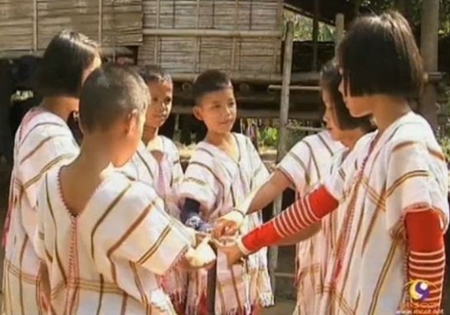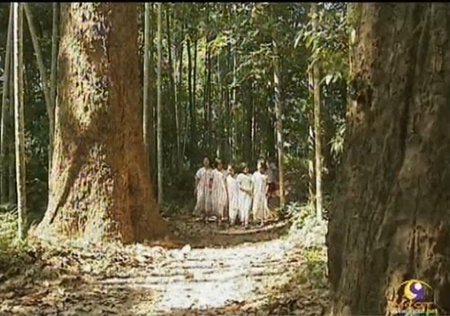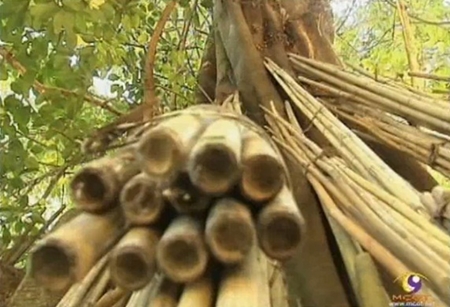At Ban Huai Din Dam village in the central province of Suphan Buri’s Dan Chang district, local residents are descendants of the Po Karen, an ethnic minority who still adhere to their original way of life with the forest.
The Po Karen have settled in the village for more than 200 years. They value the forest and have promoted among them the conservation of their way of life as well as that of the forest itself. The village was awarded by the International Union for Conservation of Nature (IUCN) in 2004 for successfully preserving and managing its forest.

The elderly at Ban Huai Din Dam teach their younger generations how their lives since their ancestors have attached to the forest in order to create awareness and the importance of the forest among the young.

“The forest is one of our four requisites, it is our economy. We have no money, but we can live our lives if our forest is abundant. Therefore, forest conservation is in parallel with culture and beliefs of us Karen people. If there’s no forest and the Karen go live in the city and do business, I don’t think the Karen will succeed. They are not born with business minds,” commented Guai Ngamying, local Po Karen ethnic at Ban Huai Din Dam.

At the village, there is a 300-year-old Bodhi tree which is the centre of local residents life where they gather for spiritual and other activities such as ceremonies to remove bad luck or a festive eating ceremony after the harvest season to thank the rice goddess.
Akachai Niemhom, Ban Huai Din Dam village head, admitted that urbanisation has come to the local community. However, he said the local Karen still persist to their identities as seen by their use of language, their costumes, their house construction using bamboo, as well as local entertainment and music among young children.
“Locals here preserve their culture. They still wear clothing they weave, and that’s part of the income. The language they use is also theirs — the Karen language,” said Mr Akachai.
The Po Karen community here exemplifies those who cling to their roots. Not only do the local Po Karen preserve their way of life, but also the tradition they keep brings in revenues as a by-product of tourism.




